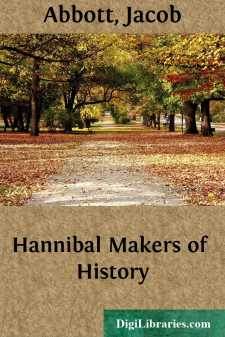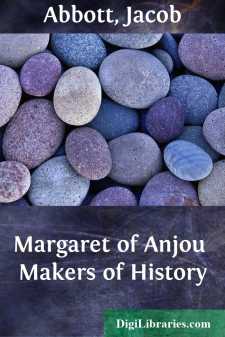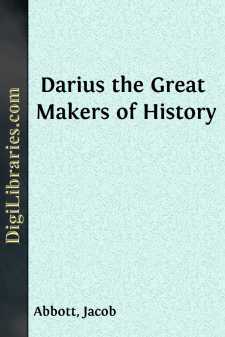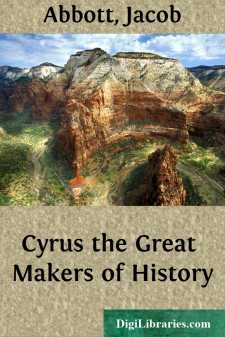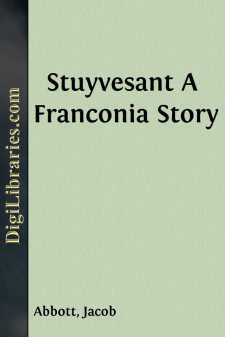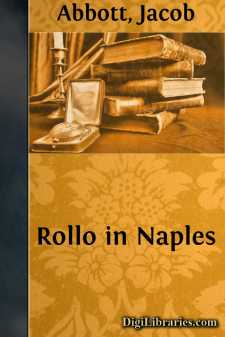Categories
- Antiques & Collectibles 13
- Architecture 36
- Art 48
- Bibles 22
- Biography & Autobiography 813
- Body, Mind & Spirit 142
- Business & Economics 28
- Children's Books 17
- Children's Fiction 14
- Computers 4
- Cooking 94
- Crafts & Hobbies 4
- Drama 346
- Education 46
- Family & Relationships 57
- Fiction 11829
- Games 19
- Gardening 17
- Health & Fitness 34
- History 1377
- House & Home 1
- Humor 147
- Juvenile Fiction 1873
- Juvenile Nonfiction 202
- Language Arts & Disciplines 88
- Law 16
- Literary Collections 686
- Literary Criticism 179
- Mathematics 13
- Medical 41
- Music 40
- Nature 179
- Non-Classifiable 1768
- Performing Arts 7
- Periodicals 1453
- Philosophy 64
- Photography 2
- Poetry 896
- Political Science 203
- Psychology 42
- Reference 154
- Religion 513
- Science 126
- Self-Help 84
- Social Science 81
- Sports & Recreation 34
- Study Aids 3
- Technology & Engineering 59
- Transportation 23
- Travel 463
- True Crime 29
Sort by:
by:
Jacob Abbott
Chapter I. B.C. 280-249Hannibal.Rome and Carthage.Hannibal was a Carthaginian general. He acquired his great distinction as a warrior by his desperate contests with the Romans. Rome and Carthage grew up together on opposite sides of the Mediterranean Sea. For about a hundred years they waged against each other most dreadful wars. There were three of these wars. Rome was successful in the end, and...
more...
by:
Jacob Abbott
The Houses of York and Lancaster. A real heroine. Margaret of Anjou was a heroine; not a heroine of romance and fiction, but of stern and terrible reality. Her life was a series of military exploits, attended with dangers, privations, sufferings, and wonderful vicissitudes of fortune, scarcely to be paralleled in the whole history of mankind. Two great quarrels. She was born and lived in a period...
more...
by:
Jacob Abbott
Chapter I.Four different modes of life enumerated.There are four several methods by which the various communities into which the human race is divided obtain their subsistence from the productions of the earth, each of which leads to its own peculiar system of social organization, distinct in its leading characteristics from those of all the rest. Each tends to its own peculiar form of government,...
more...
by:
Jacob Abbott
The Fame of Geneva. Geneva is one of the most remarkable and most celebrated cities in Europe. It derives its celebrity, however, not so much from its size, or from the magnificence of its edifices, as from the peculiar beauty of its situation, and from the circumstances of its history. Geneva is situated upon the confines of France, Switzerland, and Sardinia, at the outlet of the Lake of Geneva, which...
more...
by:
Jacob Abbott
CHAPTER I. THE MOUTH OF THE KENNEBEC. One summer, Forester and Marco Paul formed a plan for going to Quebec. Marco was very much interested in going to Quebec, as he wanted to see the fortifications. Forester had told him that Quebec was a strongly-fortified city, being a military post of great importance, belonging to the British government. Marco was very much pleased at the idea of seeing the...
more...
by:
Jacob Abbott
Chapter I. 1533-1536Greenwich.The hospital.Its inmates.Greenwich Observatory.Manner of taking time.Travelers, in ascending the Thames by the steamboat from Rotterdam, on their return from an excursion to the Rhine, have often their attention strongly attracted by what appears to be a splendid palace on the banks of the river at Greenwich. The edifice is not a palace, however, but a hospital, or,...
more...
by:
Jacob Abbott
Cambyses. B.C. 530-524Cyrus the Great.About five or six hundred years before Christ, almost the whole of the interior of Asia was united in one vast empire. The founder of this empire was Cyrus the Great. He was originally a Persian; and the whole empire is often called the Persian monarchy, taking its name from its founder's native land.His extended conquests.Cyrus was not contented with having...
more...
by:
Jacob Abbott
Herodotus and Xenophon. B.C. 550-401The Persian monarchy.Singular principle of human nature.Cyrus was the founder of the ancient Persian empire—a monarchy, perhaps, the most wealthy and magnificent which the world has ever seen. Of that strange and incomprehensible principle of human nature, under the influence of which vast masses of men, notwithstanding the universal instinct of aversion to...
more...
by:
Jacob Abbott
Chapter I. One pleasant summer morning Alphonzo was amusing himself by swinging on a gate in front of his mother’s house. His cousin Malleville, who was then about eight years old, was sitting upon a stone outside of the gate, by the roadside, in a sort of corner that was formed between the wall and a great tree which was growing there. Malleville was employed in telling her kitten a story. The...
more...
by:
Jacob Abbott
Chapter I. The Vetturino. If ever you make a journey into Italy, there is one thing that you will like very much indeed; and that is the mode of travelling that prevails in that country. There are very few railroads there; and though there are stage coaches on all the principal routes, comparatively few people, except the inhabitants of the country, travel in them. Almost all who come from foreign...
more...


